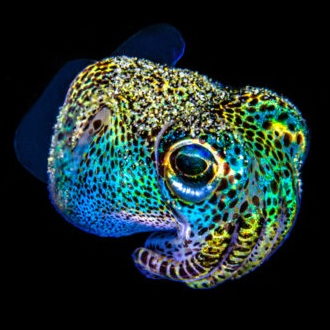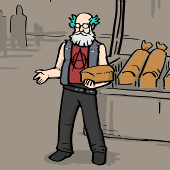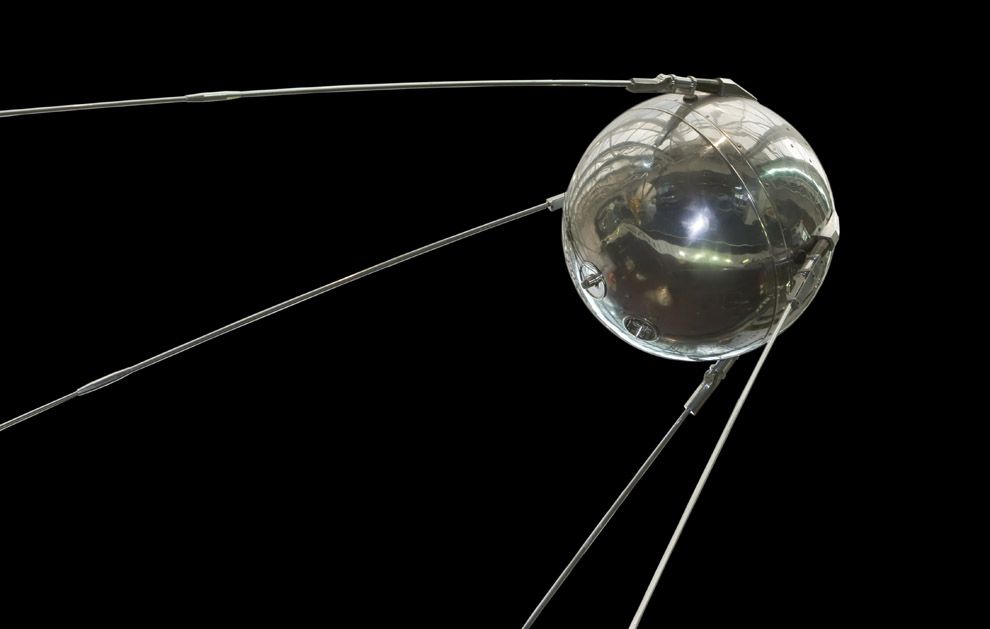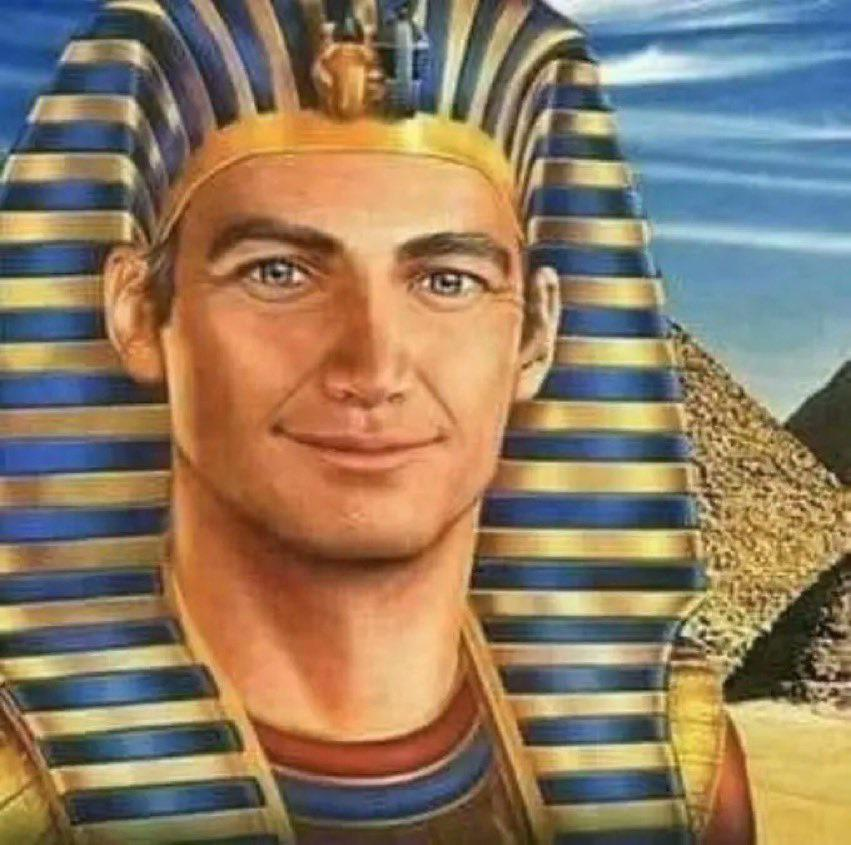archive.today • Behind F1's Velvet Curtain
What a terrible graphic. I have no artistic skills but even I could do better than that.
Most of us have the distinct pleasure of going throughout our lives bereft of the physical presence of those who rule over us.
a banger of an opening line. and to the point of thesis, i agree 1000%. i had absolutely garbage politics into my late 20s. very much a "taxes are theft" lolbertarian idiot.
through happenstance, i began working directly for a guy born into the 0.01% of the US. he was in his 40s. within two days, as my mind began to grasp the power and pointless waste this guy deployed with all the discretion of a drunk toddler. i remember the clear thought that would have been abhorrent to me a day earlier, "the government needs to come and take all of this guy's money and land" because no state, no matter how corrupt and venal, would waste money like this asshole.
i became far more open minded to all leftist thought from that purely emotional experience.
Have you ever thought that he deserves all that money and land to piss and shit all over while his slaves wipe his ass for 30 cents an hour??
Comrade billionaire is out there radicalizing posters for the revolution.
hah, I remember asking my parents when I was around 11-12, why communism wasnt used, it made more sense and seemed much more humane? The look they gave me is one of the few memories I still have from that time, a mix of pain, incomprehension and confusion, followed by a bunch of hand waving "they tried and it failed, its utopian, will never work". I spent the next few years being a good little neoliberal tool until I inevitably got interested in politics again and immediately switched back to being a disgusting little communist gremlin.
I honestly believe that your political inclinations are forged very, very early on. I travelled a lot as a small kid and I got to see the kind of damage capitalism wrought on SE Asia, I couldnt name capitalism or communism at the time, but I could tell that all of this is wrong
This is funny how close it seems to me.
Just from the absolute basic like 8th grade deffinition of government systems I thought "gee that communism one actually seems like it makes a lot of sense but that's clearly just what edgy teenagers say for attention, there's gotta be a downside I'm not seeing"
And then everything I read about the downsides of communism was stuff like "people are greedy so they'll missuse the system tonget more money and power, which is why we made a system that just encourages that behavior"
The propoganda that communism was an unserious form of government had already subconsciously worked it's way in when I was like 13, fortunately all the following arguments about why capitalism was better were pretty obviously bullshit even back then.
"people are greedy so they'll missuse the system tonget more money and power, which is why we made a system that just encourages that behavior"
my reaction when someone says this: SHUT UP SHUT UP SHUT UP SHUT UP SHUT UP SHUT UP SHUT UP

That's the internal reaction but it's funny to watch them get defensive when you say "wow I'm not like that that's crazy you would willingly admit your a selfish asshole and assume everybody else is just as bad"
there's gotta be a downside I'm not seeing
Well, until you get off the ground, capitalists keep killing your friends
that's what got me to, but i never made the conclusion that a system that encourages that behavior is good or better. i don't think i even acknowledged that aspect, i just decided that the world sucks
while balking about cutting a check to me for $1200 for a month of full time work, he sent his wife on a private jet to New Orleans on a $40,000 weekend 5 star hotel stay and shopping spree.
he would also horn in on "hanging out" with his [broke, underpaid] employees] when we went out for beers and food after work. he would order food and drinks and then "realize" he forgot his wallet and we would have to cover his share of the bill, and he would not pay anyone back.
just a complete piece of shit that collected people in desperate circumstances and manipulate them. I lasted 3 months (I was in a real bind and had to scramble), but there were people who had been with him for YEARS and they couldn't see how fucked up he was.
he would also horn in on "hanging out" with his [broke, underpaid] employees] when we went out for beers and food after work. he would order food and drinks and then "realize" he forgot his wallet and we would have to cover his share of the bill
Instantly reminded me of
The girl at the counter was very nice about it and professional, and was like “Sir, you need to pay for those first.” At first he kept pretending to be tired and not hear her, but eventually turned back around and brought them to the counter.
i became far more open minded to all leftist thought from that purely emotional experience.
"Well clearly you're just an emotional leftist who can't handle the fax and logick that the ruling class should be wasteful, because you're not as smart and work as hard as they do
 " - some libertarian chud, probably
" - some libertarian chud, probablyhmmm thats weird, i am actually leftist because im just soooooo much smarter and better than everyone by virtue of how special of a little guy i am and how built more differenter i am
I think if you wanted to turn someone into a socialist you could do it in about an hour by taking them for a spin around the paddock of a Formula 1 race. No need for corny art singing tribute to the worker or even for the Manifesto. Never before had I seen so many wealthy people gathered all in one place. If a tornado came through and wiped the whole thing out, the stock market would plummet and the net worth of a country the size of Slovenia would vanish from the ledgers in a day.
I used to live in Baltimore and remembered the kind of people who would go to the Preakness in their stupid hats and Sunday best while the whole swath of the city it was situated in starved and languished for lack of funds. This was like that, but without the hats. I saw $30,000 Birkin bags and $10,000 Off-White Nikes.
I saw people with the kind of Rolexes that make strangers cry on Antiques Roadshow. I saw Ozempic-riddled influencers and fleshy, T-shirt-clad tech bros and people who still talked with Great Gatsby accents as they sweated profusely in Yves Saint Laurent under the unforgiving Texas sun. The kind of money I saw will haunt me forever.
People clinked glasses of free champagne in outfits worth more than the market price of all the organs in my body. I stood there among them in a thrift-store blouse and shorts from Target. In the paddock, expert chefs prepared food and alcohol flowed freely, though I did not partake, already a little queasy.
Stocks were discussed in passing conversations. I opted to step outside onto the balcony and watch the last of the F1 Academy racers zip around the track. Directly beneath the balcony were the Mercedes and Ferrari garages, so close one could almost touch them.
This article makes me want to kill rich businessmen, politicians, and weapons dealers at the racing track inside the video game reboot, Hitman 2, developed by IO Interactive and released in 2018.
Modern Warfare 2 (the new one) had the closest facsimile to the Singapore GP without getting sued if you want to be a bit more gung-ho about it
I'll be real, I never even played the campaign but played heaps of that map in multiplayer
but given it's COD, I assume so yes
Did it go Fzzzt! and let out a little shower of sparks like in the game?
(I'm sorry about your hardrive though)
Nah, the game files are just very big. I enjoyed the reboot series tho. Haven't played the third one
The third one is definitely worth it. Some of the levels are slightly more linear in the way you're encouraged to beat them (although definitely still work as sand boxes) since it was obviously an audition for the Bond game they're now making, but that also let them do some really cool remixing of the usual Hitman formula. The Knives Out-meets-the-illuninati detective mystery and the Hunter-becomes-the-hunted-and-back-again Berlin rave levels come instantly to mind. Also, just in general, I don't think the vibes have ever been stronger than they are in that third game.
the steam store has all these versions of the hitman series as part of world of assassination -- it looks like you can only buy the portions of the game with the base version
Show
Well that seems unnecessarily complicated. If you'll excuse the
 link, someone posted a guide to buying different bits of content in 2024 on the Hitman subreddit here.
link, someone posted a guide to buying different bits of content in 2024 on the Hitman subreddit here.I had the first one on PS4 & played the rest on Xbox Games Pass.
The whole series is on PC Games Pass too, although I don't know if progress from the previous games carries over between Steam and Games Pass - possibly since there's a linked IOI account used for both.
Of course there's always
 too.
too.A Reddit link was detected in your comment. Here are links to the same location on alternative frontends that protect your privacy.
I really wish they would remake the Blood Money contracts in the new engine or something. That PC port is a piece of shit but it has some of my favorite missions
When we got into the garage, Lewis's car was naked, its insides visible for all to see. I think this was the moment where my respect for the sport as it exists really made itself clear. It is hard to describe what I felt looking at that car. The closest phrase I have at my disposal is the technological sublime. I pictured a living, breathing animal of extraterrestrial origin, hooked up to a thousand arcane sensors that delivered messages in little pulses. All the tubes and sculpted carbon-fiber parts and the endless net of wires all working in service to the godhead engine, formed something totally incomprehensible to me, a feat of engineering so vast it breached the realm of magic.
Straight out of Disco Elysium, I would give anything to write like this.
They sent Kate Wagner to an F1 race?!
Holy shit.
I read the whole thing and only at the bottom did I check the byline. Incredible.
F1 “sports” fans when the same guy wins for the 800th time and beating his previous record by 0.0000261 seconds

F1 fans when a lizard is on the track (he did not pay for a ticket)

Unfortunately the same guy is now beating records after coasting for half the race to the point they're already working on dominating for the next 4 years because this seasons all wrapped up after 1 race.
F1 fans paying an outrageous amount for a ticket just to watch a car for 0.0005 seconds every lap.
And they already removed it
https://defector.com/road-track-eic-tries-to-explain-why-he-deleted-an-article-about-formula-1-power-dynamics
And by removing it, public interest in the story has been spreading like wildfire, giving it a broader audience than it ever could have had otherwise. Big L for Road & Track and a win for Kate Wagner.
Weirdest thing to me in the racecar world is how you can have shitty drivers that drive like ass but simply because they're rich they can donate a whole ton and get on a team.
Mazepin getting kicked out because of the sanctions on Russia made everyone really happy and arguably helped F1 with a massive public relations problem, since Mazepin liked abusing both his staff and apparently women in general (though I don't know specifics about the latter).
Made American and european libs happy for sure. They say the same shit about racing in China, Russia, even the couple of times in India etc Meanwhile they got 3 races in the US or something and say unironicaly "actualy politics is complicated, we can't mix up sports with politics" etc.
Imagine complaining about racing in Saudi Arabia then going to Texas in fucking 2024.
When Hamilton eventually retires this shit will go back to being the extremely white sports it was before and I don't think pandering to Americans is going to save it, at least not without having 5 US races per season at that point. Yes ban the Russian. Alonso fans finaly getting the win they deserve lol too bad it was too late and the wrong Russian lol. Then inevitably once Taiwan war breaks out ban Chinese and end the CN GP permanently etc...
What's the difference between F1 and like a generic Nascar race? The model of cars?
95% of the performance comes from the car. They fight for differences of 0.5s between drivers on the same team and that is within 99.5% of each other or something. It means results are kind of limited to a very narrow range of possibilities, the best team wont come below 3rd etc. The engineering at the top 3 is probably military industrial level for sure.
Euros also took pride of their "circuits" because it is technical, it is not about overtaking but in the old days, going to an F1 race was realy about the sound and the camping experience, again EU circuits being all in the middle of nowhere often. old Hockenheim was fucking amazing going through the forest etc. The American oval circuit experience I imagine is much closer to a stadium like atmosphere so its completely different purpose and vibe.
Both kinds of races impose limits on vehicle design. The big difference is that NASCAR is stock car racing, which originally meant that the cars had to be production models that were available to the general public. This is no longer the case, but the limitations hew much closer to that ideal.
I'm no expert but the circuits are different. F1 is driven on streets while Nascar on purpose built stadium tracks.
...as mentioned in another reply, the cars are fundamentally different (NASCAR hews closer to 20th-century stock-car archetypes, F1 closer to state-of-the-art open-wheel archetypes) and F1 is (at least nominally) a constructor's championship which competes on engineering, with all teams racing unique protoypes, while NASCAR is (at least nominally) a racing-team championship which competes strictly on drivers and tuning, with all teams racing identical silhouette cars...
...the truth is that as both series have evolved, the blend of constructor vs. racing-team competition has moved to converge somewhat toward the middle...
...the greater difference is that NASCAR is primarily raced on oval speedways while F1 is primarily raced on road circuits: the joke is that NASCAR goes fast while turning left but F1 starts, stops, and turns like real cars on a real road...
...again, though, both series have evolved to converge somewhere toward the middle: most F1 circuits are now run on dedicated racetracks which resemble twisty roads, and NASCAR now includes a few road-racing tracks in their series, too, to keep things interesting...one clear distinction is that only F1 includes real street circuits and only NASCAR races on oval speedways...
...culturally, NASCAR is the domain of american good-old-boys, and F1 the domain of european jet-setters, but there's a bit of crossover outside those core demographics...
can somebody post the full text in a comment here? i want to read the article but none of the archive links are working on my phone
Death to America
part 1/4
Behind F1's Velvet Curtain
Most of us have the distinct pleasure of going throughout our lives bereft of the physical presence of those who rule over us. Were we peasants instead of spreadsheet jockeys, warehouse workers, and baristas, we would toil in our fields in the shadow of some overbearing castle from which the lord or his steward would ride down on his thunderous charger demanding our fealty and our tithes. Now, though, the real high end of the income inequality curve—the 0.01 percenters—remains elusive. To their great advantage, they can buy their way out of public life. However, if you want to catch a glimpse of them, all you need to do is attend a single day of Formula 1 racing.
The world of other people's sports is always an interesting one to the journalist who tends to stick to a single beat. My sports work is primarily in cycling, though I have covered NASCAR in these very pages. NASCAR and cycling share more in common than one might think given the noise differential and average fan profile. Cycling began in the late-19th century as a gimmick to sell newspapers, and the earliest generations of cyclists were no more than farmers trying in desperate economic times to use their toil to hit pay dirt instead of actual dirt. NASCAR, as the story goes, has its origins in bootlegging, running liquor to places it shouldn't be going. Many of its practitioners, such as Ross Chastain and Joey Logano, continue that same kind of Dukes of Hazzard swagger. Even in our professionalized, PR-besotted world, they retain in spirit their scrappy origins. Both sports share a commonality in weird, fleeting small-fry sponsorships: Dogecoin, sealant companies, and Quick-Step flooring, those kinds of things. NASCAR is still all Southern drawl, bravado, and big sound. Cycling remains a traveling circus that goes by the front lawns of French farmers. As pro sportsmen, their practitioners make money, sure—Tadej Pogačar, two-time Tour de France winner, is estimated to be on a salary of around 6 million euros. In NASCAR, Kyle Busch, the highest-paid driver, is reported to make more than twice that—$16.9 million, though he is an anomaly. Many drivers, even veterans like Brad Keselowski, make much closer to top cycling money, itself an outlier. Many who ride the Tour de France do so on paltry salaries of 50,000 euros or less.
I've done a lot of cycling races, and I don't use the word scrappy lightly. While you see some pretty mountains and get decent but not great access to athletes (prior to COVID you used to be able to interview them one on one in their team buses and sometimes even in their hotel rooms while they got their daily massages), the journalist treatment overall is pretty paltry. The hotels are abysmal and the lunches notoriously lackluster, though in the three-week races, the organizers tend to throw a couple nice ones in there for morale. As for perks, sometimes the town hosting a race will give all the journalists a bottle of wine (if in Bordeaux), a tote bag, or a T-shirt one will only wear once they are near the end of the Tour and are desperate to do laundry. Unlike other sports where sponsors make overtures toward the press, cycling sponsors rarely want anything to do with cycling journalists.
Due to cycling's less than spotless history, the life of a cycling journalist is more like that of a pesky political correspondent than a beat writer writing up scoreboards in the press box. Notorious cheating, even if it is far less common now, does that to a sport.
Because of this, my entire experience of journalism is that of a fraught game of cat and mouse, adhering to an ironclad book of ethics where even accepting a pair of socks from a team is considered a faux pas. The relationship of the journalist to the cycling team is one of mutual wariness couched with pleasantries because cycling still needs journalists to make guys going around Europe on bipedal machines interesting to the broader public. The relationship between journalists to the riders is usually distant but pleasant. Hence, when Road & Track forwarded me the opportunity on behalf of a sponsor to go to the Formula 1 United States Grand Prix, I didn't quite know what to do. Within the framework of a sport like cycling, this was an absolute no-go. Within the framework of motorsport, because it is tied so intimately to the automotive industry as a whole, these paid press trips are pretty normal. Meanwhile, as a writer, a.k.a. someone who decidedly does not make pro sportsman money, this was probably the only opportunity I'd ever get to see F1 this up close and personal. Tickets for grand prix grandstand seats can go for around a thousand per person. Part of me, deep down, wanted to see what press kickbacks could buy. With a bit of the ick still in me, I accepted.
The corporate entity in question was Mercedes-AMG sponsor INEOS, the petrochemical company. Not exactly the kind of institution a bicycle-loving, card-carrying socialist wants to get involved with. But part of the reason I took them up on their offer was because INEOS and its CEO, Jim Ratcliffe, also sponsor cycling—they are the title partner of the INEOS Grenadiers, so named after the off-road vehicle the company is now producing in what was once an ex-Mercedes factory in France. The F1 trip was also organized by the automotive division, arguably to show off its cars to car journalists with a bit of sport mixed in for fun. Regardless of this hand-wringing, it's still INEOS, just a car-shaped version of it—kind of like how the United Arab Emirates, as in the country itself, sheathes its sponsorship of sports in the scabbard of its airline. Knowing this fully, and having chosen to commit to the dark side, on a Friday afternoon in cold, autumnal Chicago, I packed my shorts and cowboy boots for Austin, Texas. Looking at my ticket, I noticed it was first class. I had never flown first class before, not even on an upgrade. Because I was flying first class, everyone who talked to me did so nicer than usual even though I had adjunct professor eye bags and was wearing sweatpants. In first class stewardesses give you warm washcloths for your hands and a real glass for your water instead of a plastic cup. The lady beside me wore a suit and read from a spreadsheet, stopping only for brief pauses during takeoff and landing. I don't think she looked at me once the entire time.
Austin is a weird town. The people there like that about it. Keep Austin Weird, the bumper stickers say. It used to be a kind of Portland of the South, a liberal oasis in a sea of red before the tech industry moved there. That designation has been transferred to Asheville, the North Carolina mountain town that's now a mecca for people who did the softer drugs in college and like beer that tastes like pine needles. Austin, at present, is a strange mix of only somewhat reconcilable vibes. One the one hand, there's huge amounts of startup money accompanied by all the dumbest accouterments of San Francisco expat-dom: Twenty-tens minimalist brand aesthetics, self-driving cars, e-scooters littered everywhere, the Tesla headquarters, Patagonia even though it doesn't even get cold there. On the other, you'll find a good ol' fashioned, hootin' n' hollerin' Southern college town. The architecture is definitely Texas. Earthy 19th-century Spanish colonial facades mingle with 1980s black-glassed skyscrapers. The latter characterizes my hotel, whose space-frame atrium is disorientingly inside out. In the lobby, a young guy in cowboy boots plays country music to an audience of the receptionists. It's true when they say live music is the thread that holds Austin together. They even have it at the airport much to the chagrin of the red-eyed and hungover. Just around the corner, Sixth Street is the must-see party corridor of Austin, and it's Friday. I think you need to be an Olympic-level drinker to survive there because the one margarita I had at a burger bar just about knocked me out, and I am no lightweight. The Astros were playing the Rangers in the playoffs, and the Rangers were losing. I thought the older gentleman sitting next to me was going to cry.
Later that evening, at a restaurant known for selling stuffed avocado, I met another journalist there along with Colleen, the PR rep for the Grenadier. Colleen wore a billowy paisley-patterned shirt. Her demeanor was outgoing in a charming, folksy way. She had an affectation of earnestness, which is always good for a PR person. She reminded me of my mother, who, coincidentally, did a stint in marketing herself before giving it all up to become a preschool teacher. We talked a bit about our work—our voices small against the volume of a Dixie Chicks cover band—and I explained with some embarrassment why Road & Track sent me there even though I couldn't drive. I said something along the lines of "People send me places to have experiences and write about them." Sipping through a tiny bar straw, Colleen laughed and shouted over the music, "Well, you're definitely about to have an experience."
INEOS had split the F1 weekend into two groups of trips. I was in the first one, which comprised the sprint and sprint shootout while the other was the race. This went unsaid because we were attending as guests of Mercedes, but no one there thought it made much difference whether we went on qualifying or race day. The results would be the same: Max Verstappen pole, Max Verstappen P1.
part 2/4
The landscape of Formula 1 has changed tremendously since the premiere in 2019 of the Netflix series Drive to Survive, which catapulted the sport to new levels of popularity in places it previously lagged—most importantly, the U.S. All sports are powered by the personalities of their practitioners, and Formula 1 has those in spades—the chipper, effusive Daniel Ricciardo; Mr. Suave, Carlos Sainz; plucky George Russell; the deep-feeling Charles Leclerc; and, perhaps above all, the sport's longtime great champion, a man from some of the humblest beginnings in motorsport, the regal and soft-spoken Lewis Hamilton, who just announced an absolutely shocking move to Ferrari after an illustrious 11 years and six championships behind the wheel of a Mercedes (and six seasons and one championship with Mercedes-powered McLarens). These men are augmented by a cast of supporting players, especially in the form of team principals like Mercedes-AMG's gruff and blunt but endearing Toto Wolff and Christian Horner, the ambitious and at times unscrupulous boss from Red Bull who makes for an entertaining antagonist.
Verstappen, as talented and precocious as he is, is not one of these big personalities. Bereft of a grand bildungsroman of his own (he is the son of Jos Verstappen, who also was an F1 driver) in literature, we would call Verstappen a foil, one who reveals more about the characteristics of other people than a well-built character in his own right. Quiet and terse, he is the epitome of the Dutch predilection for straightforwardness, and like his boss, he makes for an easy villain. If you are trying to sell a sport on a grand narrative of intrigue and rivalry between the two powers, Red Bull and Mercedes—and indeed, this was the narrative for years prior to Verstappen's triumph over Hamilton in a controversial and fan-alienating final race to the 2021 season marred by adjudication blunders—you need both powers to be powerful.
Instead, Red Bull has so dominated the field of late the sport is barely worth watching at all. Commentators must resort to spending more time hyping up drama in the midfield than on who's leading the race. Dominance is boring. But it is especially boring in the age of front-to-back television and social-media coverage that leaves no room for mythmaking. In the time of just newspaper coverage, writers who had access to athletes fashioned stories from whatever they were given. Now we all have access and what you see is what you get.
None of this would be a big deal—sports will be sports, after all—if Formula 1 did not bank hugely on a new American audience. In addition to the race at Circuit of the Americas, F1 in the last couple of years has introduced a grand prix in Miami, and now, an all-out, hyper-glitzy, celebrity-sodden motorsport "Super Bowl" in Las Vegas. But those ventures can only succeed if people are willing to pay exorbitant ticket prices—10 times the cost of NASCAR cheap seats—in order to attend. That's a lot of money for an ordinary person to splurge just to see Max Verstappen on pole and Max Verstappen P1. For years, Formula 1's growth strategy and its expansion were looking like a capitalist fairytale. But without a compelling story to keep the momentum going, one starts to wonder what the future will have in store.
In Austin, Max was a constant elephant in the room. It definitely contributed to why we all talked less about the racing and more about the other car, the one INEOS developed. That morning, after God's heaviest breakfast burrito, we were met at the hotel by Lynn Calder, the CEO of INEOS Automotive, dressed in heels with a Chanel bag. I wondered why. My experience with sports is that they are very much a shorts-and-T-shirt-type affair that involve lots of being on your feet. Lynn made some small talk about the car. The two Grenadiers parked outside—one a dusty blue and the other black—were at present the only Grenadiers in the U.S., just shipped over from France. They looked like the retro-style off-roaders you see in nature documentaries and had a kind of Eighties vibe to them but with a decidedly 2020s sheen. Tall and aggressively tactical, it was the kind of truck that caught people's eye, a holdover from the days before every car on the road was also an SUV. I'd seen pictures of it before. In cycling, the press corps always kind of had a laugh about the Grenadier. Cycling is a sport that ran entirely on the labor of rather honest Škoda sedans, and this decidedly was not that, though it did have a special blinker on it just for cyclists. The car journalists there asked car journalism questions. I climbed in the back seat gracelessly and rested my arm on the inside door, which was designed to accommodate a leaning arm. I liked that, I said, unsure of what other appraisal I should make as someone who hadn't driven a car since my second failed DMV test at 17. The Grenadier was quiet but had the decided rumble of a vehicle meant to survive quicksand and possibly a siege.
Ratcliffe, the INEOS CEO, is a known entity in cycling, about whom one says things usually reserved for supporting characters in James Bond novels. His net worth is reported to be just south of $20 billion. His pleasures, and sponsorships, are many: soccer, cycling, sailing, motorsport. He goes on safari often—hence, the Grenadier—and has purchased swaths of land for animal conservation, which (forgive me, Colleen) strikes me as decidedly British in a Rudyard Kipling kind of way. In Courchevel, a common site for Tour de France stages, he built an INEOS ski center visible from the Gucci-branded ski lifts, and rumor had it that deep in the Alps he retreated to a secret mansion accessible only by helicopter. Even as I write this, he comes off too much like a guy I made up. Well, I didn't. The driver of the car made a big deal of showing me the special cyclist blinker that has its own button. I wasn't sure what it did because I was in the car, which is tall enough that if I found myself in its way, its front hood met me at my shoulders. I decided not to mention this.
The trip to the track took about 30 minutes. When we came into the entrance, there were people walking from seemingly miles away with lawn chairs. The landscape in Texas always looks a little burnt and scruffy, but the asphalt leading into the track was new, dark as night and smooth as butter. The buildings themselves were white, clean-lined, and pristine. They reminded me more of a horse track than a stadium such as Charlotte Motor Speedway. In the middle stood a viewing tower in the form of a parabolic spire, which added a bit of architectural flair. When we got out of the cars, we were given VIP passes on lanyards. They had a luxurious heft to them, kind of like the Apple credit card. What I did not realize until that moment was that we would be viewing the race from the paddock with all the team sponsors and employees and random assorted people willing to spend the equivalent of more than my life's savings on one afternoon.
"Jesus Christ," I said to my journalist companion, and headed up the stairs.
I think if you wanted to turn someone into a socialist you could do it in about an hour by taking them for a spin around the paddock of a Formula 1 race. No need for corny art singing tribute to the worker or even for the Manifesto. Never before had I seen so many wealthy people gathered all in one place. If a tornado came through and wiped the whole thing out, the stock market would plummet and the net worth of a country the size of Slovenia would vanish from the ledgers in a day. I used to live in Baltimore and remembered the kind of people who would go to the Preakness in their stupid hats and Sunday best while the whole swath of the city it was situated in starved and languished for lack of funds. This was like that, but without the hats. I saw $30,000 Birkin bags and $10,000 Off-White Nikes. I saw people with the kind of Rolexes that make strangers cry on Antiques Roadshow. I saw Ozempic-riddled influencers and fleshy, T-shirt-clad tech bros and people who still talked with Great Gatsby accents as they sweated profusely in Yves Saint Laurent under the unforgiving Texas sun. The kind of money I saw will haunt me forever. People clinked glasses of free champagne in outfits worth more than the market price of all the organs in my body. I stood there among them in a thrift-store blouse and shorts from Target.
In the paddock, expert chefs prepared food and alcohol flowed freely, though I did not partake, already a little queasy. Stocks were discussed in passing conversations. I opted to step outside onto the balcony and watch the last of the F1 Academy racers zip around the track. Directly beneath the balcony were the Mercedes and Ferrari garages, so close one could almost touch them.
part 3/4
The day's activities commenced with a tour of the garage. In the garage, there are many mysteries one is not allowed to know or see. The use of phones is forbidden lest one incur accusations of espionage. When we got into the garage, Lewis's car was naked, its insides visible for all to see. I think this was the moment where my respect for the sport as it exists really made itself clear. It is hard to describe what I felt looking at that car. The closest phrase I have at my disposal is the technological sublime. I pictured a living, breathing animal of extraterrestrial origin, hooked up to a thousand arcane sensors that delivered messages in little pulses. All the tubes and sculpted carbon-fiber parts and the endless net of wires all working in service to the godhead engine, formed something totally incomprehensible to me, a feat of engineering so vast it breached the realm of magic. Hamilton himself walked through in his helmet, unexpectedly on an errand. After being in the presence of the car, I perceived him differently than before, when he was just a guy driving in circles on TV. The scope of his capabilities became more directly known to me in the face of that which I believed to be unknowable. All of that was built in service of him. He stopped and looked into the open maw of the car. The tour guide led us hurriedly into the back room where the coffee and tire bags were stored so that no one could listen to what Lewis said.
About half an hour later, they brought him up to the paddock to talk to us. It wasn't a press conference, but rather a kind of a TED Talk. The questions were rote and a guy with a microphone asked them as though they were being broadcast on television. Hamilton talked rotely about how much he loved America and the fans here, talked—to the people who needed reassurance—about how the car was "getting there" but made it pointedly certain that they knew it still needed some work, which surprised me, making me realize this was still a private setting. I come from a sport where chivalry never died and no one is allowed to say anything negative because it is "unsportsmanlike" and every cyclist has to play his part in the farcical pageant of being a dull, humble farmer's son. It is a pretty open secret that a lot of cyclists don't like their bike sponsors but they would never, ever, ever say it. It's somewhat contradictory, but the sheer financial calculus of F1 is what makes it possible for Hamilton to be critical. This is a multibillion-dollar industry putting its full heft behind him doing well. It's reminiscent of the patronage system of precapitalist times, when rulers and nobles with endless riches paid musicians and composers to live in the palace with them.
One thing that strikes me about Formula 1 is its unexpected resemblance to fencing—it is an absolutely poised and disciplined affair. Recently, for my 30th birthday, I took up medieval sword fighting—historical European martial arts, they call it. For the first two weeks we worked on standing in a good medieval stance, always prepared to move. Sword fighting is learned through what are called set plays, specific motions of sword and body combined into one fluid action. But when you watch people who are really good at sword fighting, an ornate, flowing dance emerges from these seemingly disparate parts. Formula 1 is like that. When the cars line up on the grid, everything is totally neat and rehearsed, completely in its place. Tires, people, staff, even journalists. The teams are meted out in perfect sections—they don't call it the grid for nothing. But when time comes for the sprint to begin, team members move in perfect coordination, synchronized. They have stances and footwork. This is most true of the pit crew and the astonishing speed at which they travel through space as one organism, totally practiced in set plays of their own. This was beautiful to watch in real life. The unfurling of the apparatus of the setup, groups peeling back one by one until there are only these alien cars, these technological marvels kissing the ground. Before the heartbeat, they respirated.
When they set off, one by one, first in the sprint, then the first shootout, what struck me was how quiet the cars were. This makes sense to me as someone who once studied acoustics in graduate school. Formula 1, again like sword fighting, is about an economy of motion. Noise is a hallmark of mechanical inefficiency. When mechanical systems work well, they work quietly. Noise at its core is excess energy. In Formula 1 cars, being perfect machines, that energy is redirected where it could be of use. The track began with a big hill, 11 percent in gradient, which made for a spectacular formal gesture, especially with the people on the lawn alongside it crowded on blankets. This, the finish line, and the straightaway coming off the final turn, were all I could see. There was a television above the opposite grandstands, but information was refreshingly scarce. When I watch F1 on TV, I'm used to the constant chattering of the commentators, the endless switching of perspectives and camera angles, the many maps. Here, I stood, and the cars merely passed, and when they passed, numbers changed on a big tower. It was so clean and almost proper, the way they flew by me in the sprint, dutifully, without savagery. Team principals and engineers were lined up on stools in their little cubbyholes crowding around laptops. In between each car was a calm lull in which calculations and feedback were made. A man with a sign walked up to the edge of the track to mark the laps for the Mercedes drivers. Then, almost bored, he sat on a stool waiting to do it again. I found this lull and surge transfixing, as though I were viewing the scaffolding behind a convincing theater set, the mundanity behind the spectacle.
The sound came before the machine and then the machine blurred by and disappeared over the elegant hill, singing. By the second sprint shootout, even though I've watched F1 for a few years now, I had no idea what was going on without 10 split-screen views and a guy yelling in my ear. The cards fell where they fell: Max in first as usual, followed by Leclerc, but then, unexpectedly, Alex Albon. After the second sprint, the INEOS folks informed the journalists that we needed to leave early in order to avoid traffic and make it to dinner on time, where, apparently there would be a special guest. Frustrated, I returned to watching the cars as they started up again, knowing that the drivers were pushing them to their limits, engrossed in their personal kaleidoscope of motion and color. Hamilton was in one of them. In the last shootout, he drove differently than before. A great verve frayed the lines he was making, something we can only call effort, push. Watching him, I understood what was so interesting about this sport, even though I was watching it in its most bare-bones form—cars going around in circles. The driver is the apotheosis of quick-moving prowess, total focus and control. The car is both the most studied piece of human engineering, tuned and devised in lab-like environments and at the same time a variable entity, something that must be wrestled with and pushed. The numbers are crunched, the forms wind-tunneled. And yet some spirit escapes their control, and that spirit is known only by the driver. Yes, we watch this perfect blend of man and machine, but we speak of the machine as though it were not of human origin, as though the machine, being born from science could—eventually, through its iterative processes—sublimate human flaws. The driver, being human, knows this is false. His intimacy with the machine is the necessary missing connection, and even if the machine were perfect, it was made for imperfect hands. But it is never perfect. The gaps in its perfection are where disasters transpire, but also miracles. As we waited for the van to take us where we were parked, a part of the track was still visible to us. Hamilton distinguished himself by the lines he cut along the corner and the loudness of his engine, that pushing. We heard over a loudspeaker that he had finished third, a remarkable improvement above the last two sprints, where he lagged behind in the midfield. This made everyone in our camp happy. They always called him by his first name. It reminded me of how I used to talk about cyclists after I started interviewing them, with the swagger of knowing them. An SUV passed by us with a cavalcade of cars in front.
"That's Prince Harry," someone said.
part 4/4
The dinner was in the private room of an expensive steakhouse. I was wise to have brought a dress but the other journalists, newly arrived, were not as fortunate—they came in Car and Driver T-shirts. In the room with us were other executives from INEOS and their wives. The prices of the steaks began at 70 dollars. People overuse the expression "crawling out of one's skin," but I felt it then. My family is not from the stock that prepares their children with arcane table manners necessary for moments like this. I ate a lovely cut of beef praying that no one was looking at me. My knife clattered and startled one of the wives. The four journalists talked about cars. They were definitely journalists, a lively bunch, though most of them were rookies around my age, with the requisite excitement. We made self-deprecating jokes about ourselves. The executives watched, making some conversation. They knew I worked in cycling and talked to me about that. It's very funny. We know there is a class system in America, a great divide between the haves and have-nots. To be a have-not and be talked to by the haves has an air of the farcical to it. Everything is just manners with nothing inside. Everyone is perfectly nice as though that would bridge the chasm of difference. When Hamilton came into the room he was wearing a cool pair of pants with shimmery colored mesh sewed in and had an exhausted appearance, having come just from the track. We were allowed to talk to him but were told not to make any recordings or transcriptions. When he spoke, it was notable how often he mentioned his father and how deeply-felt his political convictions were. Some people are totally different off the record, but Lewis was simply a more lively version of himself. I find him a fascinating figure. A lot of fans either love or hate him, see him, paradoxically, as both humble and arrogant. The word quiet is better. Not reserved, not shy, just quiet. He belongs to a special group of people. The ones I've met in life include the violinist Hilary Hahn and Pogačar, the Tour de France winner—human beings who walk the earth differently, with an aura that transcends it. He appeared perpetually relaxed, controlled and refined, both present with us in the room but on a higher plane within. We used to call this magnificence when we believed in kings. I don't know what we call it now. Excellence, maybe. The irony of parading someone incredible like that around in the backrooms of petrochemical executives is not lost on me. I was grateful that I got the opportunity to speak to Lewis Hamilton, someone I am not ashamed to say I admire. I would have preferred it if they let him go home and rest instead.
I learned more about myself on my trip to Austin than I did about F1. I learned that I'm the kind of person who would rather be right than happy, would rather stand in my ivory tower than frolic in the fields below. I experienced firsthand the intended effect of allowing riffraff like me, those who distinguish themselves by way of words alone, to mingle with the giants of capitalism and their cultural attachés. It is to give this anointed everyman a taste of the good life, to make them feel like a prince for a day, and that if they do this with enough scribblers they will write nice words and somehow ameliorate the divide between the classes. My hosts were nice people with faces. They showed us extraordinary hospitality. If one takes many trips like this, I can see how it warps the mind, the perception of the world and our place in it. Power is enticing. Like Lewis Hamilton? You can eat steaks that cost the same as your electricity bill and meet him again. You, too, can bask in the balding aura of Prince Harry and the fake glow of Instagram models. Any wealth and status you lack, you can perform. What I received wasn't a crash course in Formula 1—in fact, Formula 1 only became more mystifying to me—but journalism, as viewed by the other side. The great irony of the other side is that they need journalism. The petrochemical companies, deeply powerful institutions, need journalists to write about all the things they attach themselves to that are not being a petrochemical company. Formula 1, on a rapacious tangent for growth and new markets, needs journalists to spread the good word of the richest sport in the world. Unfortunately for the other side, journalism still remains a double-edged sword. Send me on an experience and I'll have an experience. Sadly, I suffer from an unprofitable disease that makes me only ever capable of writing about the experience I'm having. The doctors say it's terminal.
Sorry, it is really, really long and selecting all has a ton of pictures and stuff included
She's so cool.
The article is very good, as well. A few really beautiful passages.
[. . .] Frustrated, I returned to watching the cars as they started up again, knowing that the drivers were pushing them to their limits, engrossed in their personal kaleidoscope of motion and color. Hamilton was in one of them. In the last shootout, he drove differently than before. A great verve frayed the lines he was making, something we can only call effort, push. Watching him, I understood what was so interesting about this sport, even though I was watching it in its most bare-bones form—cars going around in circles. The driver is the apotheosis of quick-moving prowess, total focus and control. The car is both the most studied piece of human engineering, tuned and devised in lab-like environments and at the same time a variable entity, something that must be wrestled with and pushed. The numbers are crunched, the forms wind-tunneled. And yet some spirit escapes their control, and that spirit is known only by the driver. Yes, we watch this perfect blend of man and machine, but we speak of the machine as though it were not of human origin, as though the machine, being born from science could—eventually, through its iterative processes—sublimate human flaws. The driver, being human, knows this is false. His intimacy with the machine is the necessary missing connection, and even if the machine were perfect, it was made for imperfect hands. But it is never perfect. The gaps in its perfection are where disasters transpire, but also miracles. As we waited for the van to take us where we were parked, a part of the track was still visible to us. Hamilton distinguished himself by the lines he cut along the corner and the loudness of his engine, that pushing. We heard over a loudspeaker that he had finished third, a remarkable improvement above the last two sprints, where he lagged behind in the midfield. This made everyone in our camp happy. They always called him by his first name. It reminded me of how I used to talk about cyclists after I started interviewing them, with the swagger of knowing them. An SUV passed by us with a cavalcade of cars in front.
"That's Prince Harry," someone said.
























